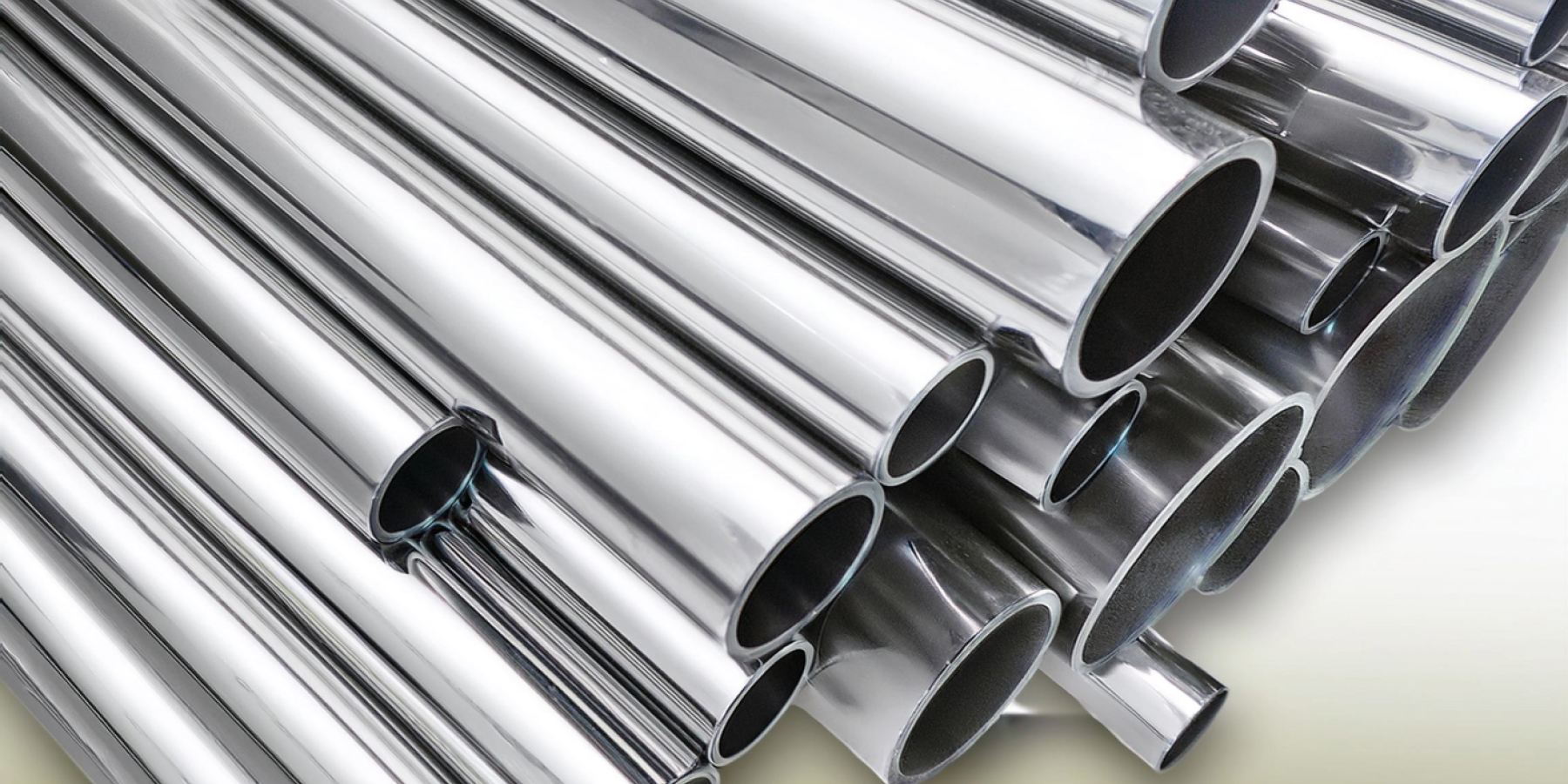Alloy Steel Forged Fittings

Alloy Steel Forged Fittings
At Om Steel, we specialize in manufacturing and supplying high-quality Alloy Steel Forged Fittings that are designed to meet the diverse needs of various industries. Our forged fittings are made from premium quality alloy steel, making them highly durable and resistant to corrosion, wear and tear, and high temperatures.
We offer a wide range of alloy steel forged fittings, including elbows, tees, reducers, couplings, and more, in various sizes and dimensions. We can also customize our products to meet your specific requirements.
One of the key features of our alloy steel forged fittings is their excellent strength and toughness, ensuring long-lasting performance in harsh environments. Our products are also highly resistant to stress corrosion cracking, making them suitable for use in high-pressure applications.
At Om Steel, we use the latest technology and manufacturing techniques to ensure that our products meet the highest quality standards. Our team of experts is always available to provide you with the necessary guidance and support to ensure that you get the right product for your specific application.
Types of Alloy Steel Forged Fittings
Threaded Fittings
Threaded fittings are the most commonly used type of alloy steel forged fittings. They have threads on both ends, which allow them to be screwed onto pipes or other fittings. Threaded fittings come in a variety of shapes and sizes, including elbows, tees, couplings, and plugs.
One advantage of threaded fittings is that they can be easily installed and removed without the need for special tools or equipment. This makes them ideal for applications where frequent maintenance or repairs are required.
Socket Weld Fittings
Socket weld fittings are similar to threaded fittings in that they connect to pipes or other fittings. However, instead of threads, socket weld fittings have a socket that fits over the end of a pipe or fitting. The socket is then welded into place using a specialized welding process.
Socket weld fittings are often used in high-pressure applications because they provide a strong and secure connection between pipes and other components. They also offer better flow characteristics than threaded fittings because there are no internal threads to impede the flow of fluid.
Butt Weld Fittings
Butt weld fittings are designed to be welded directly to pipes or other components. They have a smooth surface that allows for easy welding without the need for additional materials such as gaskets or seals.
Butt weld fittings come in a variety of shapes and sizes, including elbows, tees, reducers, and caps. They are often used in applications where high strength and reliability are required.
Flanged Fittings
Flanged fittings consist of two parts: a flange and a fitting body. The flange has holes drilled into it that align with corresponding holes on the fitting body. Bolts are then inserted through these holes to hold the two parts together.
Flanged fittings offer several advantages over other types of alloy steel forged fittings. For one thing, they provide an extremely strong connection between pipes and other components. Additionally, they can be easily disassembled for maintenance or repairs.
Benefits Alloy Steel Forged Fittings
Durability and Strength
Resistance to Corrosion
Cost-Effective
Versatility
Ease of Installation
Reduced Risk of Leaks
Improved Safety
Increased Efficiency
Environmental Benefits
The use of alloy steel forged fittings also has environmental benefits. Their resistance to corrosion means that they have a longer lifespan than other types of pipe fitting materials, reducing waste and associated environmental impacts. Additionally, their ability to withstand harsh environments reduces the risk of leaks and spills that can harm the environment.
Continue Reading on Similar Topics:
Alloy Steel Forged Fittings Specification
ASTM A182 F5 Alloy Steel Forged Fittings Specification
| Specifications | ASTM A182 & ASME SA182 |
|---|---|
| Standard | ASME 16.11, MSS SP-79, 83, 95, 97, BS 3799 |
| Size | 1/2" NB TO 48" NB. (Socketweld & Screwed-Threaded) |
| Type | Socketweld Fittings, Screwed-Threaded Fittings |
| Class | 2000 LBS, 3000 LBS, 6000 LBS, 9000 LBS |
ASTM A182 F5 Alloy Steel Forged Fittings Manufacturing Standards
| ASTM A182 – ASME SA182 | Standard Specification for Wrought Austenitic Alloy Steel Piping Fittings |
|---|---|
| ASME B16.11 | Socket Welding and Threaded Forged Fittings |
| MSS SP-43 | Wrought and Fabricated Butt-Welding Fittings for Low Pressure, Corrosion Resistant Applications |
| MSS SP-95 | Swage(d) Nipples and Bull Plugs |
| BS3799 | Specification for Steel pipe fittings, screwed and Socket-welding for the petroleum industry |
Alloy Steel Fittings Dimensions Chart
| NPS | O.D. | 90 Degree Elbow | 45 Degree Elbow | 180 Degree Return | ||||
|---|---|---|---|---|---|---|---|---|
| (inch) | - | Long Radius Elbow | Short Radius | Long Radius Elbow | Long Radius Elbow | |||
| - | (millimeter) | (inch) | "Center to Face (inch)" | "Center to Face (inch)" | "Center to Face (inch)" | "Radius (inch)" | "Center to Center (inch)" | "Back to face (inch)" |
| 1/2 | 21.3 | 0.84 | 1 1/2 | - | 5/8 | - | 2 | 1 7/8 |
| 3/4 | 26.7 | 1.05 | 1 1/8 | - | 7/16 | - | 2 1/4 | 1 11/16 |
| 1 | 33.4 | 1.315 | 1 1/2 | 1 | 7/8 | - | 3 | 2 3/16 |
| 1 1/4 | 42.2 | 1.66 | 1 7/8 | 1 1/4 | 1 | - | 3 3/4 | 2 3/4 |
| 1 1/2 | 48.3 | 1.9 | 2 1/4 | 1 1/2 | 1 1/8 | 3 | 4 1/2 | 3 1/4 |
| 2 | 60.3 | 2.375 | 3 | 2 | 1 3/8 | 4 | 6 | 4 3/16 |
| 2 1/2 | 73 | 2.875 | 3 3/4 | 2 1/2 | 1 3/4 | 5 | 7 1/2 | 5 3/16 |
| 3 | 88.9 | 3.5 | 4 1/2 | 3 | 2 | 6 | 9 | 6 1/4 |
| 3 1/2 | 101.6 | 4 | 5 1/4 | 3 1/2 | 2 1/4 | 7 | 10 1/2 | 7 1/4 |
| 4 | 114.3 | 4.5 | 6 | 4 | 2 1/2 | 8 | 12 | 8 1/4 |
| 5 | 141.3 | 5.563 | 7 1/2 | 5 | 3 1/8 | 10 | 15 | 10 5/16 |
| 6 | 168.3 | 6.625 | 9 | 6 | 3 3/4 | 12 | 18 | 12 5/16 |
| 8 | 219.1 | 8.625 | 12 | 8 | 5 | 12 | 24 | 16 5/16 |
| 10 | 273.1 | 10.75 | 15 | 10 | 6 1/4 | 15 | 30 | 20 3/8 |
| 12 | 323.9 | 12.75 | 18 | 12 | 7 1/2 | 18 | 36 | 24 3/8 |
Alloy Steel Forged Fittings Weight Chart
| SIZE | A | B | QTY | WEIGHT |
|---|---|---|---|---|
| ¼ | 0.81 | 0.88 | 160 | 0.2 |
| ⁄ | 0.97 | 1 | 130 | 0.26 |
| ½ | 1.12 | 1.31 | 100 | 0.57 |
| ¾ | 1.31 | 1.5 | 75 | 0.71 |
| 1 | 1.5 | 1.81 | 40 | 1.08 |
| 1 ¼ | 1.75 | 2.19 | 25 | 1.68 |
| 1 ½ | 2 | 2.44 | 18 | 2.38 |
| 2 | 2.38 | 2.97 | 10 | 3.55 |
| 2 ½ | 3 | 3.62 | 4 | 6.22 |
| 3 | 3.38 | 4.31 | 2 | 10.36 |
| 4 | 4.19 | 5.75 | 1 | 23.91 |
ASTM A182 F5 Alloy Steel Forged Fitting Chemical Composition
| Grade | C | Mn | Si | S | P | Cr | Mo |
|---|---|---|---|---|---|---|---|
| A182 F5 | 0.15 | 0.3 – 0.6 | 0.5 | 0.03 | 0.03 | 4 – 6 | 0.044 – 0.65 |
Grade F5 Alloy Steel Forged Fitting Mechanical properties
| Grade | Tensile Strength (Mpa) | Yield Strength (Mpa) | Elongation % |
|---|---|---|---|
| A182 F5 | 275 | 485 | 20 |
Industrial Application of Alloy Forged Fittings
Defence & Aerospace
Defence & Aerospace
Oil/Gas
Oil/Gas
Speciality Valves & Vacuum
Speciality Valves & Vacuum
Precision Components
Precision Components
Request A Quote
FAQ
Alloy steel forged fittings are typically manufactured through a process called hot forging, where a piece of heated alloy steel is hammered or pressed into the desired shape. The forging process increases the strength and durability of the fittings, making them suitable for use in high-stress applications.
There are many different grades of alloy steel used for forged fittings, each with its own unique combination of properties. Some of the most popular grades include ASTM A182 F11, ASTM A182 F22, ASTM A182 F91, and ASTM A182 F5. Know more.
Alloy steel forged fittings offer several benefits over other types of fittings, including their strength, durability, and resistance to wear and corrosion. They are also highly customizable, allowing for specific application requirements to be met. Know more.
When selecting alloy steel forged fittings, it’s important to consider factors such as the required strength, pressure rating, and corrosion resistance. Other factors to consider include the application temperature and environment, as well as the desired surface finish, dimensional tolerances, and cost. Working with a reputable supplier who can provide quality materials and technical support is also important.




